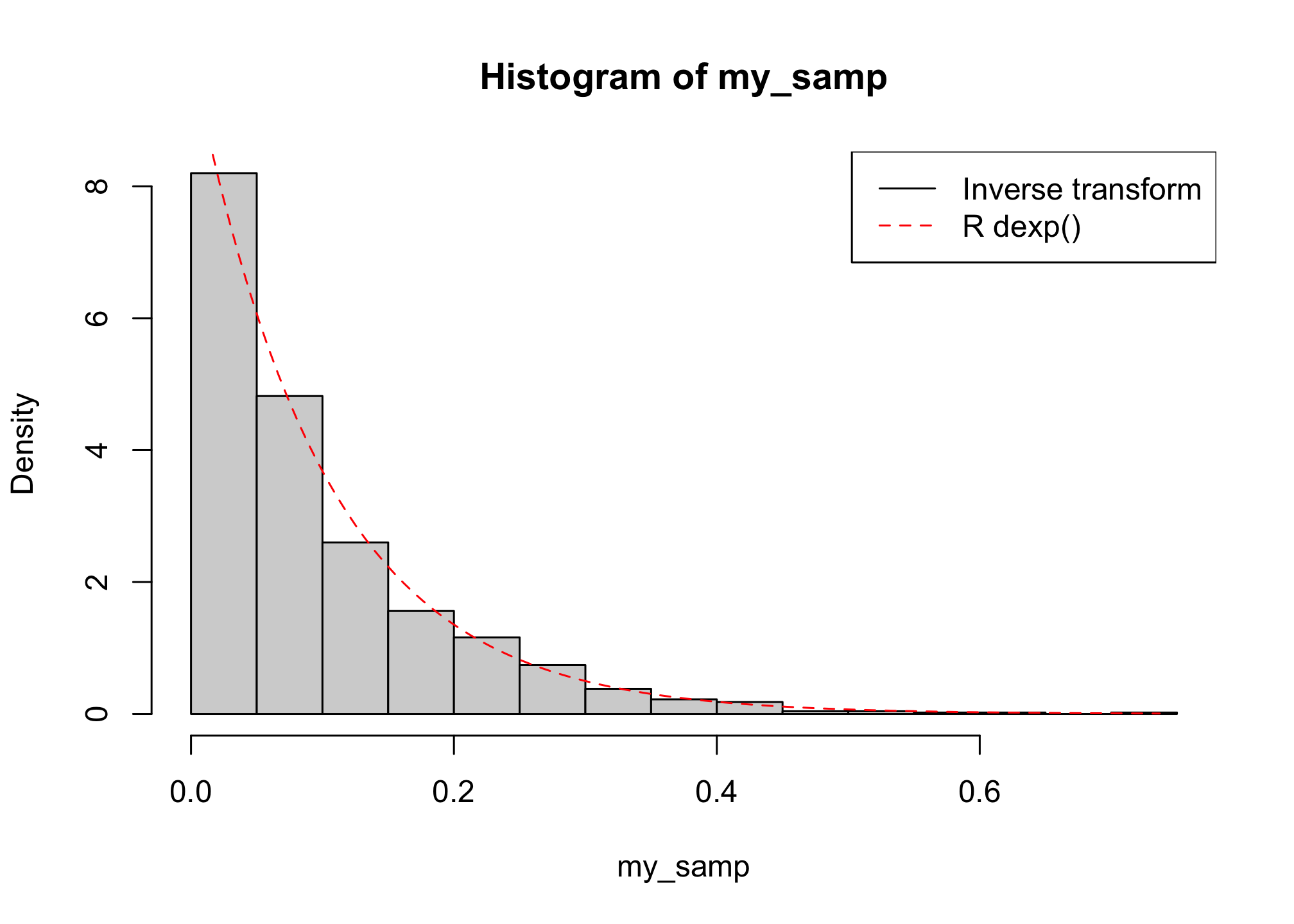Exercise 3: Inverse transform sampling
Program a sampling algorithm to sample from the exponential distribution with parameter runif()).
Compare the distribution of your sample to the theoretical target distribution (thanks to the built-in function dexp()).
Try out several values for the
generate_exp <- function(n, lambda) {
u <- runif(n)
x <- -1/lambda * log(1 - u)
return(x)
}
n_samp <- 1000
my_samp <- generate_exp(n = n_samp, lambda = 10)
hist(my_samp, probability = TRUE, n = 25)
curve(dexp(x, rate = 10), from = 0, to = max(my_samp), col = "red", lty = 2, add = TRUE)
legend("topright", c("Inverse transform", "R dexp()"), lty = c(1, 2), col = c("black",
"red"))